Harry was the last British survivor of the First World War, and the country's oldest man after 113 year old Henry Allingham passed away last week.
Harry Patch has a special claim to fame, however; he was the only one of (until recently) three surviving British veterans of the First World War to have seen frontline action in the carnage of the trenches. He was 'The Last Fighting Tommy'.
The Telegraph carries a tribute from Prince Charles:
Here is an article, also from The Telegraph, which was published two years ago and explains Harry's life and service in more depth:Mr Patch, who was known as the Last Fighting Tommy, was the last living soldier to have fought in bloody battle of Passchendaele, at Ypres, in 1917 in which more than 70,000 troops died.
The veteran's death follows that of Henry Allingham, also a veteran of the Great War who died on July 18 at the age of 113.
Mr Patch, who was a machine-gunner in the Duke of Cornwalls's Light Infantry, died on Saturday morning at Fletcher House care home in Somerset where he was living.
The Prince of Wales was among the first to pay tribute to Mr Patch, telling the BBC: "The Great War is a chapter in our history we must never forget, so many sacrifices were made, so many young lives lost. So today nothing could give me greater pride than paying tribute to Harry Patch from Somerset.
"Harry was involved in numerous bouts of heavy fighting on the front line but amazingly remained unscathed for a while. Tragically one night in September 1917 when in the morass in the Ypres Salient a German shrapnel shell burst over head badly wounding Harry and killing three of his closest friends.
"In spite of the comparatively short time that he served with the Duke of Cornwall's Light Infantry Harry always cherished the extraordinary camaraderie that the appalling conditions engendered in the battalion and remained loyal to the end."
Once more, see that humbling stoicism in the face of adversity. Once more, we mourn a man who seems to take with him so much of what made this country great.Henry John Patch would be notable simply by virtue of his 109 years on earth. When he was born, on June 17, 1898, the Marquess of Salisbury was Prime Minister and Queen Victoria had two and a half years still to reign. Kitchener was 11 weeks away from fighting the Battle of Omdurman and the outbreak of the Boer War lay 16 months into the future. H G Wells's latest work, The War of the Worlds, had just been published in book form following its successful serialisation in Pearson's Magazine.
But Harry Patch is more than a gerontological phenomenon. The man arranging his medals and sitting up straight for a photograph in the conservatory of a nursing home in Wells is the last British man alive to have served in the trenches during the First World War. The last survivor of Passchendaele, that three-month orgy of blood-letting in the mud of Flanders which began 90 years ago this month and commemorated by the Queen at Tyne Cot cemetery in Belgium today. The last Tommy of the Great War.
When he is gone, the British experience of daily life on the Western Front will be no man's land. No living man's land.
There are two other men alive who served between 1914 and 1918, but neither experienced the living nightmare of the front line. Henry Allingham, born two years earlier than Mr Patch, served in France with the Royal Naval Air Service and occasionally visited the front to recover downed aircraft, while Bill Stone was called up for the Royal Navy only two months before the Armistice and did not see action.
Mr Patch takes no pride in being the last of the millions who fought and died amid unmitigated horror. His improbable status sometimes overwhelms him, reducing him to silent contemplation.
"The poor bloody infantry. Dead right. That's what we were. For 1/6d a day."
His speech is slow and deliberate; gentle, rusty Somerset. Kaiser is pronounced "Kay-zer", with a long "z".
That he is sitting here, listening to children in a nearby playground, is a testament to life's caprice. He should have died 90 years ago, on a black night in September 1917, with his mates. It would have been an unremarkable death: one more shredded body to add to three others.
He was part of a Lewis Gun team in the Duke of Cornwall's Light Infantry, a close-knit family drawn closer together by the knowledge that machine-gunners, by virtue of the mayhem they wrought among advancing infantry, were likely to receive no mercy if over-run.
That night, his battalion had been pulled out of the line and was moving to the rear over open ground when a German shell, a "whizz-bang", exploded. The young Private Patch was wounded in the groin by a shell splinter. One other member of the five-strong team survived. The others were blown to pieces.
"It killed Number Three - he came from Truro - and Number Four and Number Five. Jack and Jill we called those two. They came from Falmouth. Number Three was known as Maudy. There was an actress of that name. He had a good sense of humour."
Were they good friends? "All of us."
Did they look after each other? "Always."
The British Empire suffered 500,000 dead and wounded during the three months of Third Ypres, as Passchendaele is more properly known. The offensive was the brainchild of the British commander-in-chief, Field Marshal Sir Douglas Haig, and didn't take long to bog down in the morass created by incessant artillery bombardment and constant rain. Casualties mounted.
Between the start of the campaign on July 31 and its end on November 8, an average of 5,000 men a day were killed or wounded, and all for the capture of a few miles of desecrated land.
Harry Patch grew up in Coombe Down, near Bath. He left school at 15 and trained as a plumber. He was 16 when war broke out and reached 18 just as conscription was being introduced. Unlike many of the young men who smilingly signed up for death and dismemberment, he had no illusions.
"I knew what to expect. My mother had three sons. My oldest brother suffered from asthma. He didn't pass. My middle brother was a regular soldier. Royal Engineers. Serving in Africa. He was called home and wounded at Mons. I knew what it was going to be like: dirty, filthy, insanitary."
It met his expectations. There were the lice that clung to the body and the rats that gnawed fearlessly at bootlaces. And the mud. Thick brown liquid quite capable of drowning a man. The shell burst that killed his friends ended Mr Patch's three or so months in the front line.
"I can remember the shell bursting. I saw the flash, I must have passed out. The next thing I could remember was the dressing station. A wound in my groin. The nurse painted something around it to stop the lice getting at it. I was given a good hot bath. The lice came off - you could pick them up with a shovel - bloody things."
There was a shortage of anaesthetic and he had to be held down as the shell splinter was removed. The medical officer asked him if wanted to keep it as a souvenir. Mr Patch told him what he could do with it. "The fella in the next bed said to me, 'If he writes anything in that book, you're for Blighty.' Well, he did write in the book. I didn't believe it until someone came in and called my name and number. I went to Rouen."
During his recovery in Britain, he met his first wife. "Knocked her down. She was coming down some steps from the cinema and I was running for the bus and knocked her down. Picked her up, dusted her off and it started from that." They were married for 56 years and had two sons, both of whom have since died.
Mr Patch has few mementos from the war. He was too old to fight in the Second World War and worked as a sanitary engineer in American army camps in the south-west. He retired in 1963. Following his first wife's death in 1976, he married again at the age of 81. His second wife died five years ago.
His membership of that steadily diminishing band of British veterans of the war to end all wars has earned him audiences with the Queen and the French Légion d'honneur. A few years ago he was taken to meet a German veteran who had fought opposite him in Flanders. "Nice old chap. A pacifist. Same as me. Why did they suffer, those millions of men?"
The afternoon is wearing on and Mr Patch is tired. He pauses to listen to the children playing. What does it feel like to be the last of those millions, that army of ghosts?
"I don't like it," he says and then adds: "I sit there and think. And some nights I dream - of that first battle. I can't forget it.
"I fell in a trench. There was a fella there. He must have been about our age. He was ripped shoulder to waist with shrapnel. I held his hand for the last 60 seconds of his life. He only said one word: 'Mother'. I didn't see her, but she was there. No doubt about it. He passed from this life into the next, and it felt as if I was in God's presence.
"I've never got over it. You never forget it. Never."
Rest in peace, Harry.
You may be gone, but we will never forget the sacrifices you and your generation made for us.
Having said that, it would be nice if many of the politicians paying tribute to Harry remembered what he actually fought for - Great Britain and her people.
.jpg)























































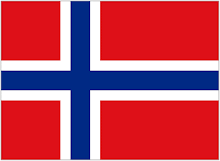
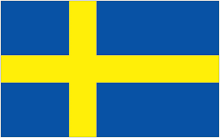






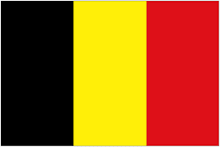

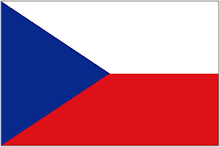











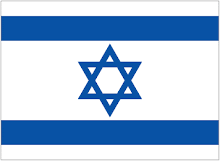




1 comment:
The politicians don't have time to appreciate what others have done to preserve their freedom...they're too busy dismantling the nation!
Post a Comment